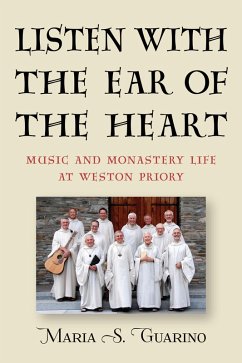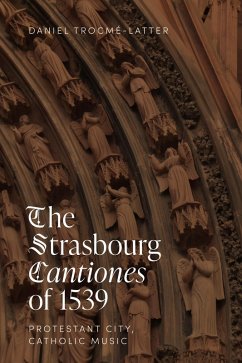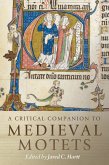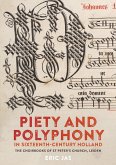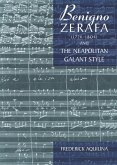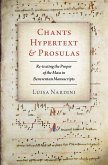A "contemplative" ethnographic study of a Benedictine monastery in Vermont known for its folk-inspired music.
Far from being a long-silent echo of medieval religion, modern monastery music is instead a resounding, living illustration of the role of music in religious life. Benedictine monks gather for communal prayer upwards of five timesper day, every day. Their prayers, called the Divine Office, are almost entirely sung.
Benedictines are famous for Gregorian Chant, but the original folk-inspired music of the monks of Weston Priory in Vermont is amongthe most familiar in post-Vatican II American Catholicism. Using the ethnomusicological methods of fieldwork and taking inspiration from the monks' own way of encountering the world, this book offers a contemplative engagement with music, prayer, and everyday life. The rich narrative evokes the rhythms of learning among Benedictines to show how monastic ways of being, knowing, and musicking resonate with humanistic inquiry and the pursuit of knowledge andunderstanding.
Maria S. Guarino received her PhD in critical and comparative studies in music from the University of Virginia. She specializes in ethnography, religious life, Benedictine monasticism, and contemplativepractices.
Support for this publication was provided by the Howard Hanson Institute for American Music of the Eastman School of Music at the University of Rochester.
Far from being a long-silent echo of medieval religion, modern monastery music is instead a resounding, living illustration of the role of music in religious life. Benedictine monks gather for communal prayer upwards of five timesper day, every day. Their prayers, called the Divine Office, are almost entirely sung.
Benedictines are famous for Gregorian Chant, but the original folk-inspired music of the monks of Weston Priory in Vermont is amongthe most familiar in post-Vatican II American Catholicism. Using the ethnomusicological methods of fieldwork and taking inspiration from the monks' own way of encountering the world, this book offers a contemplative engagement with music, prayer, and everyday life. The rich narrative evokes the rhythms of learning among Benedictines to show how monastic ways of being, knowing, and musicking resonate with humanistic inquiry and the pursuit of knowledge andunderstanding.
Maria S. Guarino received her PhD in critical and comparative studies in music from the University of Virginia. She specializes in ethnography, religious life, Benedictine monasticism, and contemplativepractices.
Support for this publication was provided by the Howard Hanson Institute for American Music of the Eastman School of Music at the University of Rochester.
Dieser Download kann aus rechtlichen Gründen nur mit Rechnungsadresse in A, D ausgeliefert werden.

